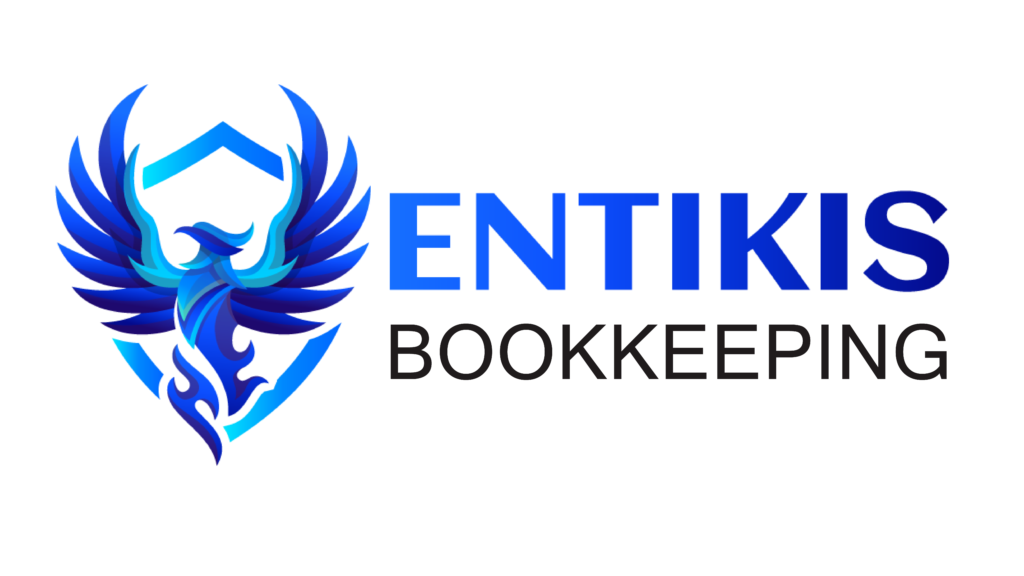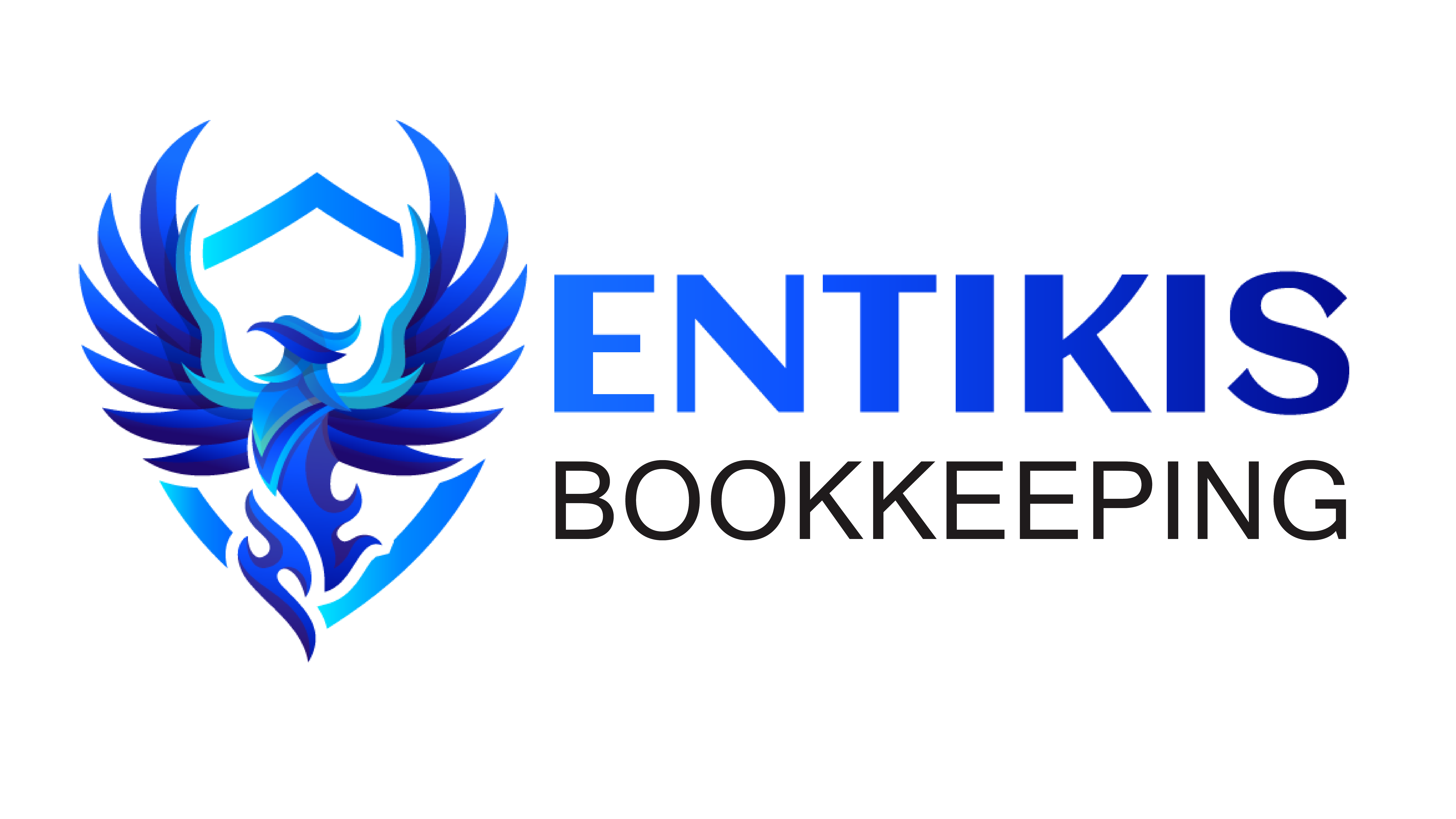
What is Auditing?
In the dynamic world of finance and business operations, auditing plays a pivotal role in ensuring transparency, accuracy, and compliance. Whether you’re a business owner in Fort Worth or part of the Tarrant County and surrounding Tarrant County Metroplex, understanding the vital functions of an auditor is crucial. At Entikis Bookkeeping, we recognize the significance of auditing and bookkeeping for businesses in this area and are here to shed light on the roles and responsibilities of an auditor.
Auditing is a systematic examination of an organization’s financial records, transactions, processes, and controls to ensure accuracy, reliability, and compliance with applicable laws and regulations. It serves as a crucial tool for stakeholders, including investors, regulators, management, and creditors, to assess the financial health and integrity of an entity.
There are several types of audits, each serving a specific purpose:
-
Financial Audit: This is the most common type of audit, focusing on the accuracy of financial statements. Certified public accountants (CPAs) or external auditors examine an organization’s financial records to ensure they are prepared in accordance with generally accepted accounting principles (GAAP) or international financial reporting standards (IFRS). The aim is to provide assurance to stakeholders about the reliability of financial information.
-
Operational Audit: Operational audits evaluate the efficiency and effectiveness of an organization’s operations, including processes, procedures, and internal controls. These audits help management identify areas for improvement, cost-saving opportunities, and risks that could impact the organization’s performance.
-
Compliance Audit: Compliance audits assess whether an organization adheres to specific laws, regulations, policies, and contractual agreements. This type of audit ensures that the entity is following relevant laws and regulations, such as tax laws, industry standards, or internal policies.
-
Information Systems Audit: Information systems audits focus on assessing the security, integrity, and reliability of an organization’s information technology (IT) systems. Auditors evaluate controls over data, software, hardware, and networks to identify vulnerabilities and mitigate risks related to cybersecurity threats, data breaches, and privacy concerns.
-
Investigative Audit: Investigative audits are conducted to uncover fraud, misconduct, or irregularities within an organization. Auditors use forensic accounting techniques to gather evidence, analyze financial transactions, and determine the extent of any wrongdoing.
Overall, auditing plays a critical role in promoting transparency, accountability, and trust in financial reporting and organizational operations. It helps stakeholders make informed decisions and ensures that businesses operate ethically and in compliance with applicable laws and regulations.
The Role of an Auditor
The role of an auditor is critical in ensuring the integrity, reliability, and transparency of financial reporting within organizations. Auditors, typically certified public accountants (CPAs) or audit firms, perform independent examinations of an entity’s financial statements, processes, controls, and operations. Their primary objective is to provide assurance to stakeholders, including shareholders, investors, creditors, and regulators, that the financial information presented is accurate, consistent with accounting standards, and free from material misstatement or fraud.
Here are the key responsibilities and roles of an auditor:
-
Independence and Objectivity: Auditors must maintain independence and objectivity throughout the auditing process. This means they should be free from any conflicts of interest and have no bias towards the organization or its management. Independence ensures that auditors can perform their duties without undue influence and provide impartial assessments of the entity’s financial position and performance.
-
Examination of Financial Statements: Auditors review and analyze the organization’s financial statements, including the balance sheet, income statement, statement of cash flows, and notes to the financial statements. They assess the accuracy and completeness of financial data, ensuring compliance with accounting principles such as Generally Accepted Accounting Principles (GAAP) or International Financial Reporting Standards (IFRS).
-
Assessment of Internal Controls: Auditors evaluate the effectiveness of internal controls within the organization. This involves reviewing processes, procedures, and systems implemented by management to prevent and detect errors, fraud, and misstatements in financial reporting. Adequate internal controls help mitigate risks and safeguard the organization’s assets.
-
Risk Assessment: Auditors identify and assess risks that may impact the accuracy and reliability of financial statements. They consider factors such as industry trends, economic conditions, regulatory changes, and internal control deficiencies to determine the level of risk associated with the audit engagement. Understanding risks enables auditors to tailor their audit procedures and allocate resources effectively.
-
Audit Procedures and Testing: Auditors design and perform audit procedures to gather sufficient and appropriate evidence supporting their audit opinion. These procedures may include substantive testing, analytical procedures, and tests of controls. Auditors verify transactions, account balances, and disclosures through sampling, inquiry, observation, and inspection of documents and records.
-
Communication and Reporting: Auditors communicate their findings and conclusions to stakeholders through an audit report. The report includes the auditor’s opinion on whether the financial statements present a true and fair view of the organization’s financial position and performance. If significant issues or deficiencies are identified during the audit, auditors may also provide recommendations for improvement to management.
-
Ethical and Professional Standards: Auditors adhere to ethical and professional standards established by regulatory bodies, such as the American Institute of Certified Public Accountants (AICPA) or the International Federation of Accountants (IFAC). These standards govern auditor conduct, competence, objectivity, and confidentiality, ensuring integrity and trust in the auditing profession.
In summary, auditors play a crucial role in promoting confidence and trust in financial reporting by independently verifying the accuracy, reliability, and compliance of an organization’s financial statements and internal controls. Their objective assessments provide stakeholders with valuable insights into the organization’s financial health, performance, and risk management practices.
Auditors, such as those at Entikis Bookkeeping, take on a multifaceted role. Their primary responsibilities include:
Financial Statement Verification
Auditors meticulously review financial statements to ensure they present a true and fair view of a company’s financial position. This practice is essential for businesses in Tarrant County and the surrounding Tarrant County Metroplex to maintain trust with stakeholders.
Financial statement verification is the process of ensuring the accuracy and reliability of an organization’s financial statements. It involves reviewing the information presented in these statements to confirm that they fairly represent the company’s financial position, performance, and cash flows. Verification is crucial for investors, creditors, regulators, and other stakeholders to make informed decisions about the company.
The verification process typically involves several steps:
-
Reviewing Documentation: This includes examining various financial documents such as balance sheets, income statements, cash flow statements, and notes to the financial statements. Analysts compare the information presented in these documents with supporting evidence like bank statements, invoices, contracts, and receipts.
-
Analyzing Ratios and Trends: Financial analysts calculate and analyze key financial ratios such as liquidity ratios, profitability ratios, and leverage ratios. They compare these ratios to industry benchmarks and historical trends to identify any discrepancies or irregularities that may indicate errors or potential issues.
- Auditing: Auditing involves a comprehensive examination of the financial statements by independent auditors. Auditors assess the accuracy of financial information, compliance with accounting standards and regulations, and the effectiveness of internal controls. They may perform tests of transactions, sample testing, and analytical procedures to gather sufficient evidence to support their opinion on the fairness of the financial statements.
-
Internal Controls Evaluation: Evaluating the effectiveness of internal controls is essential for ensuring the reliability of financial statements. This involves assessing the design and implementation of internal controls related to financial reporting processes to prevent errors, fraud, and misstatements.
-
Disclosure Verification: Analysts verify the accuracy and completeness of disclosures made in the financial statements. This includes ensuring that all relevant information, such as contingent liabilities, related-party transactions, and significant accounting policies, is adequately disclosed to users of the financial statements.
-
Management Representation: Management may provide representations or assertions about the accuracy and completeness of the financial statements. Analysts consider these representations but also independently verify the information provided by management.
Overall, financial statement verification plays a crucial role in maintaining transparency, credibility, and trust in financial reporting, which are essential for stakeholders to make well-informed decisions.
Compliance Assurance
Compliance assurance refers to the systematic process implemented by organizations to ensure adherence to laws, regulations, policies, and industry standards relevant to their operations. It involves establishing mechanisms, procedures, and controls to monitor, assess, and verify compliance with applicable requirements and mitigate the risk of non-compliance.
Key Components of Compliance Assurance:
-
Regulatory Compliance: Organizations must comply with various laws and regulations at the local, national, and international levels, depending on their industry and geographic scope. These regulations may cover areas such as financial reporting, environmental protection, consumer protection, data privacy, and workplace safety. Compliance assurance involves understanding the regulatory landscape, interpreting requirements, and implementing measures to ensure adherence.
-
Internal Policies and Procedures: In addition to external regulations, organizations often establish internal policies, procedures, and guidelines to govern their operations and conduct. Compliance assurance entails ensuring that employees understand these internal policies and follow them consistently. This may include policies related to ethical conduct, corporate governance, information security, and quality management.
-
Risk Assessment and Management: Compliance assurance requires organizations to identify, assess, and mitigate compliance risks effectively. This involves conducting risk assessments to identify potential compliance gaps, vulnerabilities, and areas of exposure. Organizations then develop risk management strategies to address these risks, which may include implementing controls, enhancing training programs, or revising processes.
-
Monitoring and Reporting: Continuous monitoring is essential for compliance assurance to detect deviations from established policies and regulations promptly. Organizations may utilize automated monitoring tools, conduct regular audits, and perform internal reviews to monitor compliance activities. Reporting mechanisms enable organizations to communicate compliance performance to internal stakeholders, senior management, regulators, and external parties as required.
-
Training and Awareness: Ensuring that employees are adequately trained and aware of their compliance obligations is critical for compliance assurance. Organizations provide training programs, workshops, and resources to educate employees on relevant laws, regulations, policies, and procedures. This helps foster a culture of compliance and empowers employees to recognize and address compliance issues proactively.
-
Documentation and Recordkeeping: Maintaining accurate records and documentation is essential for compliance assurance. Organizations are required to document compliance activities, findings, corrective actions, and evidence of compliance to demonstrate accountability and transparency. Robust recordkeeping practices facilitate audits, investigations, and regulatory inquiries, enabling organizations to provide evidence of compliance when needed.
-
Continuous Improvement: Compliance assurance is an ongoing process that requires organizations to continuously evaluate and enhance their compliance programs. This involves conducting periodic reviews, soliciting feedback from stakeholders, and incorporating lessons learned from compliance incidents or audits into the improvement of policies, procedures, and controls.
Benefits of Compliance Assurance:
-
Risk Mitigation: Effective compliance assurance helps organizations identify and mitigate compliance risks, reducing the likelihood of non-compliance-related incidents, penalties, fines, and reputational damage.
-
Enhanced Trust and Reputation: Demonstrating a commitment to compliance builds trust with stakeholders, including customers, investors, regulators, and the public, enhancing the organization’s reputation and credibility.
-
Operational Efficiency: Streamlining compliance processes and controls through compliance assurance efforts can improve operational efficiency, reduce costs, and minimize disruptions to business operations.
-
Legal and Regulatory Compliance: Compliance assurance enables organizations to meet legal and regulatory requirements, avoiding potential legal liabilities, sanctions, and enforcement actions.
-
Competitive Advantage: Maintaining a strong compliance posture can provide a competitive advantage by differentiating the organization as a reliable and trustworthy partner in the marketplace.
In summary, compliance assurance is essential for organizations to uphold ethical standards, mitigate risks, and maintain trust with stakeholders. By implementing robust compliance programs, organizations can ensure adherence to regulations, policies, and industry standards, fostering a culture of integrity and accountability throughout the organization.
Auditors ensure that businesses in Fort Worth adhere to local, state, and federal regulations. Compliance is critical in avoiding legal issues and maintaining the reputation of the company.
Risk Assessment
Identifying potential risks is another key duty of auditors. Businesses in Tarrant County and surrounding areas rely on auditors to help them mitigate risks that could impact their financial stability.
Detection of Fraud
In the world of bookkeeping, fraud can be a significant concern. Auditors at Entikis Bookkeeping are trained to spot irregularities and potential fraudulent activities.
Recommendations for Improvement
Improving compliance assurance requires a comprehensive approach that addresses various aspects of the organization’s compliance program. Here are some recommendations for enhancing compliance assurance:
-
Risk-Based Approach: Implement a risk-based approach to compliance assurance by conducting regular risk assessments to identify and prioritize compliance risks. Focus efforts on high-risk areas and allocate resources accordingly to mitigate the most significant threats to compliance.
-
Enhanced Training and Awareness: Invest in ongoing training and awareness programs to ensure that employees at all levels understand their compliance obligations. Tailor training sessions to specific roles and responsibilities, and provide regular updates on changes to regulations, policies, and procedures.
-
Strengthened Internal Controls: Review and strengthen internal controls to prevent, detect, and correct compliance issues effectively. This may include implementing segregation of duties, enhancing access controls, and automating compliance monitoring processes where possible.
-
Regular Audits and Reviews: Conduct regular audits and reviews of compliance activities to assess the effectiveness of controls, identify areas for improvement, and verify compliance with regulatory requirements. Ensure that audit findings are addressed promptly through corrective action plans.
-
Utilization of Technology: Leverage technology solutions such as compliance management software, data analytics tools, and automated monitoring systems to streamline compliance processes, improve data accuracy, and enhance compliance oversight.
-
Promotion of a Culture of Compliance: Foster a culture of compliance throughout the organization by promoting ethical behavior, integrity, and accountability. Encourage open communication channels for reporting compliance concerns and provide incentives for employees who demonstrate a commitment to compliance.
-
Regular Communication and Reporting: Establish clear communication channels for sharing compliance updates, reporting compliance performance, and addressing compliance-related issues. Ensure that senior management is actively engaged in compliance efforts and receives regular updates on compliance activities and initiatives.
-
External Collaboration: Collaborate with industry peers, regulators, and external experts to stay informed about emerging compliance trends, best practices, and regulatory changes. Participate in industry associations, forums, and working groups to share knowledge and benchmark against industry standards.
-
Continuous Improvement: Continuously evaluate and improve the effectiveness of the compliance program through periodic reviews, feedback mechanisms, and lessons learned from compliance incidents or audits. Incorporate feedback from stakeholders to refine policies, procedures, and controls as needed.
By implementing these recommendations, organizations can strengthen their compliance assurance efforts, mitigate compliance risks, and build a culture of integrity and accountability that supports sustainable business success.
Auditors provide valuable insights and recommendations for enhancing financial processes. Businesses in Fort Worth can use this information to optimize their operations.
Independence
Auditing maintain independence to ensure an unbiased assessment. This is especially crucial for businesses in Tarrant County and the surrounding Tarrant County Metroplex, where objectivity is essential.
Ethical Conduct
Adhering to a strict code of ethics is non-negotiable for auditors. Businesses rely on their ethical behavior to maintain credibility.
Reporting
Once the audit is complete, auditors generate comprehensive reports detailing their findings. These reports are critical for decision-making in businesses across Fort Worth and Tarrant County.
It is a fundamental process for businesses in Fort Worth, Tarrant County, and the surrounding Tarrant County Metroplex. Entrusting your auditing and bookkeeping needs to professionals like those at Entikis Bookkeeping ensures that your business operates with integrity and transparency. Whether it’s financial statement verification, compliance assurance, risk assessment, or fraud detection, auditors play a vital role in maintaining the financial health of your business.
Remember, in the ever-changing landscape of finance, having a dedicated auditing partner is key to success.
If you are looking for professional bookkeeping services, please contact us at admin@entikis.com and 817-415-1715 to learn more about how Entikis Bookkeeping can support your journey to success! Located at 640 Taylor St Suite , Fort Worth, TX, United States, Texas. We offer professional bookkeeping services for businesses in the Burleson, Fort Worth and the Surrounding Tarrant County Metroplex.




